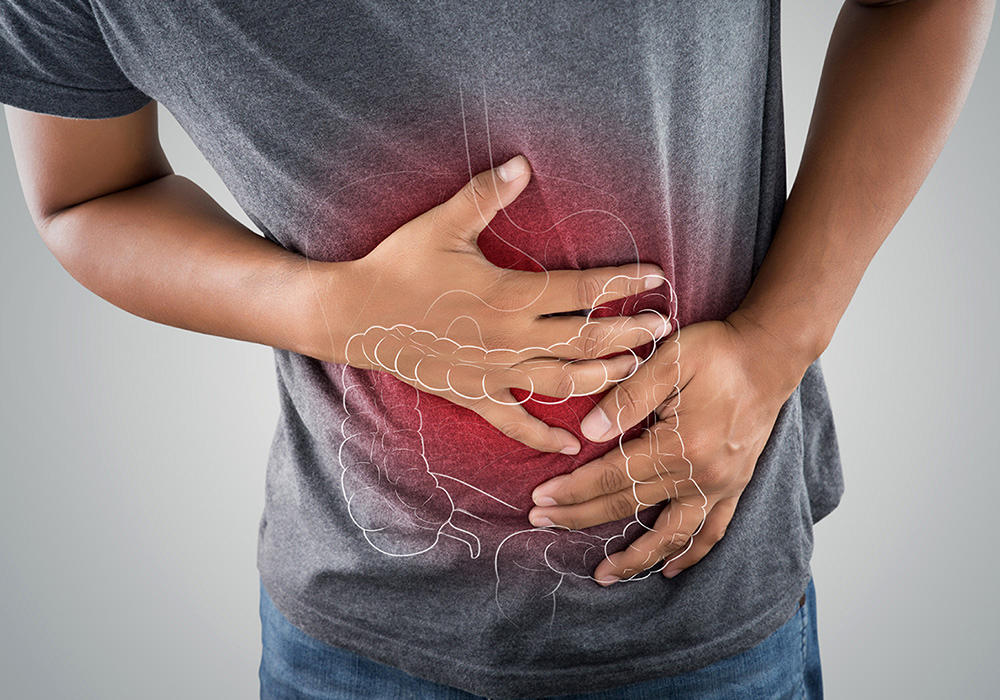Digestive system and metabolism problems

The most important symptoms that result in gastrointestinal system and metabolism disorders include gastric ulcer, constipation, diarrhea, nausea and vomiting. The food, from the entrance to mouth till it exits, connects with digestive system. The most important diseases of gastrointestinal system are as follows: Celiac disease introduction This disease actually is an intestinal auto-immune disorder that hereditary factors plays an important role in its pathogenesis. Indeed, the intestines according to their sensitivity to specific type of food, demonstrate a reaction that forces the body’s Immune system to attack that part. Over time, the beneficial villi in this area will be damaged. This villi destruction predisposes a person to bloating, diarrhea and constipation. Treatment of celiac disease The most common method to treat celiac disease is with specific diets. Gluten-free diets can be the best suggested treatment for this condition. In the most acute case, application of celiac disease drugs can accelerate the healing process in a person. Dermatological drugs such as Dapsone are recommended for the treatment of celiac disease in most cases. Introduction of constipation Another gastrointestinal problems and diseases is constipation. Abnormal defecation cause constipation in people. Hard stools and failure to defecate three times a week can make a person susceptible to this disease. This disease directly depends on the lifestyle of people. Other factors play a role in the development of constipation. These factors include hypo or hyperthyroidism, heart disease as well as respiratory disease. Treatment of constipation When constipation is due to hereditary factors, doctors treat the disease with drugs. Constipation medications include laxatives, herbal remedies and medications with chemical formulas. In most cases, constipation is relieved by a series of daily activities such as walking and high-fiber diets. Introduction of Crohn’s disease Another gastrointestinal disease is Crohn’s disease. This disease causes abscess and fistula by provoking inflammation in the intestinal tract. Abscess and fistula, which are sacs filled with pus, cause narrowing and obstruction of the bowel and disrupt its balanced functional flow. Crohn’s disease can be caused by hereditary conditions or excessive stress. Treatment of Crohn’s disease In most of cases, doctors prescribe Crohn’s disease drugs to treat this condition. Antibiotics are at the forefront of such drugs. After antibiotics, immunosuppressive drugs can also help cure Crohn’s disease. Another way to treat this disease is to use surgical procedures to remove a part of the intestine that has…
The most important symptoms that result in gastrointestinal system and metabolism disorders include gastric ulcer, constipation, diarrhea, nausea and vomiting. The food, from the entrance to mouth till it exits, connects with digestive system. The most important diseases of gastrointestinal system are as follows:
Celiac disease introduction
This disease actually is an intestinal auto-immune disorder that hereditary factors plays an important role in its pathogenesis. Indeed, the intestines according to their sensitivity to specific type of food, demonstrate a reaction that forces the body’s Immune system to attack that part. Over time, the beneficial villi in this area will be damaged. This villi destruction predisposes a person to bloating, diarrhea and constipation.
Treatment of celiac disease
The most common method to treat celiac disease is with specific diets. Gluten-free diets can be the best suggested treatment for this condition.
In the most acute case, application of celiac disease drugs can accelerate the healing process in a person. Dermatological drugs such as Dapsone are recommended for the treatment of celiac disease in most cases.
Introduction of constipation
Another gastrointestinal problems and diseases is constipation. Abnormal defecation cause constipation in people. Hard stools and failure to defecate three times a week can make a person susceptible to this disease. This disease directly depends on the lifestyle of people. Other factors play a role in the development of constipation. These factors include hypo or hyperthyroidism, heart disease as well as respiratory disease.
Treatment of constipation
When constipation is due to hereditary factors, doctors treat the disease with drugs. Constipation medications include laxatives, herbal remedies and medications with chemical formulas.
In most cases, constipation is relieved by a series of daily activities such as walking and high-fiber diets.
Introduction of Crohn’s disease
Another gastrointestinal disease is Crohn’s disease. This disease causes abscess and fistula by provoking inflammation in the intestinal tract. Abscess and fistula, which are sacs filled with pus, cause narrowing and obstruction of the bowel and disrupt its balanced functional flow. Crohn’s disease can be caused by hereditary conditions or excessive stress.
Treatment of Crohn’s disease
In most of cases, doctors prescribe Crohn’s disease drugs to treat this condition. Antibiotics are at the forefront of such drugs. After antibiotics, immunosuppressive drugs can also help cure Crohn’s disease.
Another way to treat this disease is to use surgical procedures to remove a part of the intestine that has lost its function. Intestinal surgery is used when medications have no effect on eliminating the disease in the patient’s body.
By using special diets for Crohn’s disease, the symptoms of this disease can be partially eliminated. Avoidance of fatty foods and carbonated beverages, fruits and vegetables that cause bloating, and grains that produce gas are considered in these diets.
Introduction of diarrhea
When the stool is loose and watery and its frequency is more than 3 times a day, the person has diarrhea. In many cases, poor hygiene and consumption of spoiled food can cause diarrhea. Also, being allergic to certain foods can cause diarrhea in people. Hereditary diseases and intestinal problems also have a great impact on the emergence of this disease.
Treatment of diarrhea
Diets can mainly improve diarrhea in people. Consumption of soup and boiled rice and potatoes can be the best foods to treat diarrhea.
Diarrhea can also be treated faster with medication. The most common drug for diarrhea is Diphenoxylate, which has better results than other drugs.
Introduction of diverticular disease
The diverticulum is mainly caused by the formation of small sacs such as hernias in the colon wall. In many cases, this disease is caused by prolonged constipation and increased pressure on the intestines. Weakness of the longitudinal muscles of the intestine is common in this disease. People who use high-fiber foods in their diet are less likely to get the disease.
Treatment of diverticular disease
Surgical treatment of diverticular disease can be the fastest and most common way to solve this problem. About 10 to 25 percent of those who have the disease have to undergo surgery.
Treatment of diverticular disease through diet can also have beneficial effects on its recovery. Eating fiber-rich diets makes it easier to defecate and reduce the pressure on the gut. Reducing the consumption of fatty foods, which aggravate the symptoms of this disease, are also effective in improvement of this disease.
Introduction of gastroesophageal reflux disease
Problem in the inlet valve of the stomach can cause the gastric contents return to the esophagus. This valve is responsible for blocking the back-flow of food from the stomach to the esophagus. In some cases, due to the incomplete closure of the sphincter, gastric acid returns to the esophagus and causes burning and pain in the middle of the chest.
Treatment of gastroesophageal reflux disease
Physicians try to improve the general condition of the sphincter by prescribing medication for gastroesophageal reflux disease. Prescription of antacids can also delay the function of stomach acid. But such drugs can cause constipation or diarrhea in people using them.
Another way to treat gastroesophageal reflux disease is surgery. This procedure is performed when the person does not show any reaction to the drugs.
Dietary therapies are also available to treat gastroesophageal reflux disease. The most common option is consumption of baking soda dissolved in water for 1 week.
Irritable bowel syndrome
Irritable bowel syndrome (IBS) is a disorder in which the patient experiences severe abdominal and intestinal pain. The disease manifests symptoms of altered defecation pattern, cramps and spasms of the abdominal muscles.
Treatment of irritable bowel syndrome
Currently there is no definitive treatment for the disease. Relaxing and staying calm can reduce the frequency of this disease. It can also be helpful to use a healthy diet that lacks soft drinks and alcohol.





